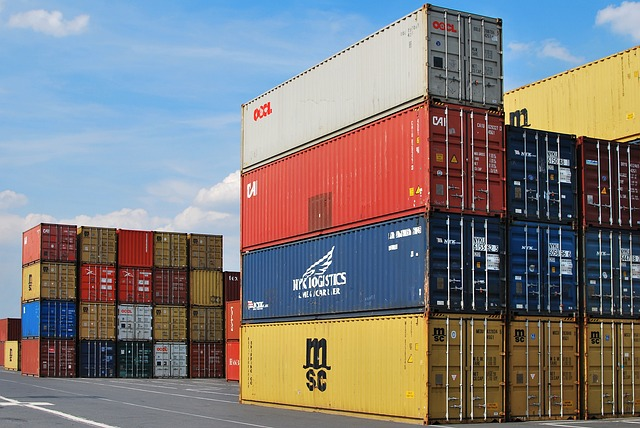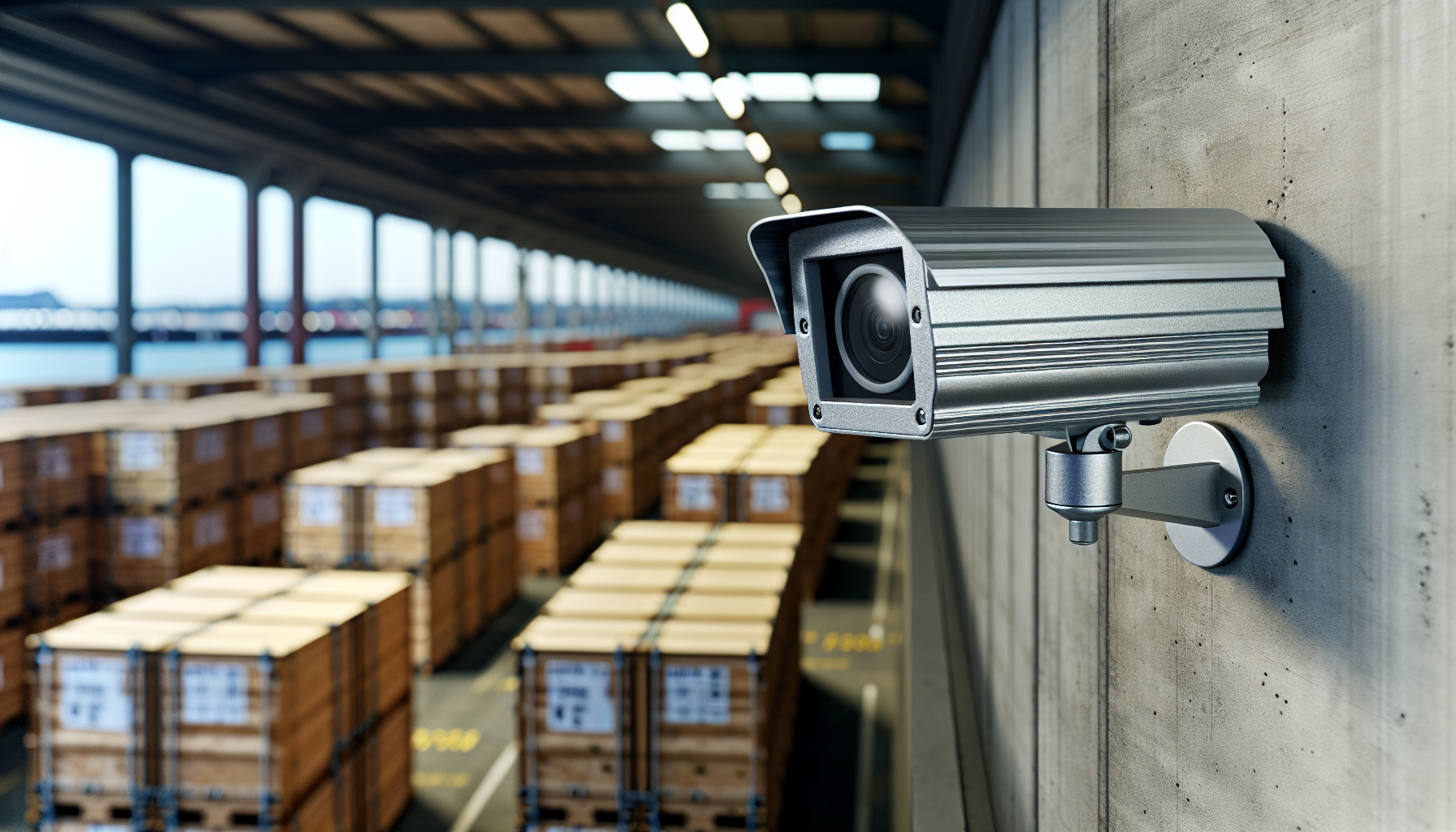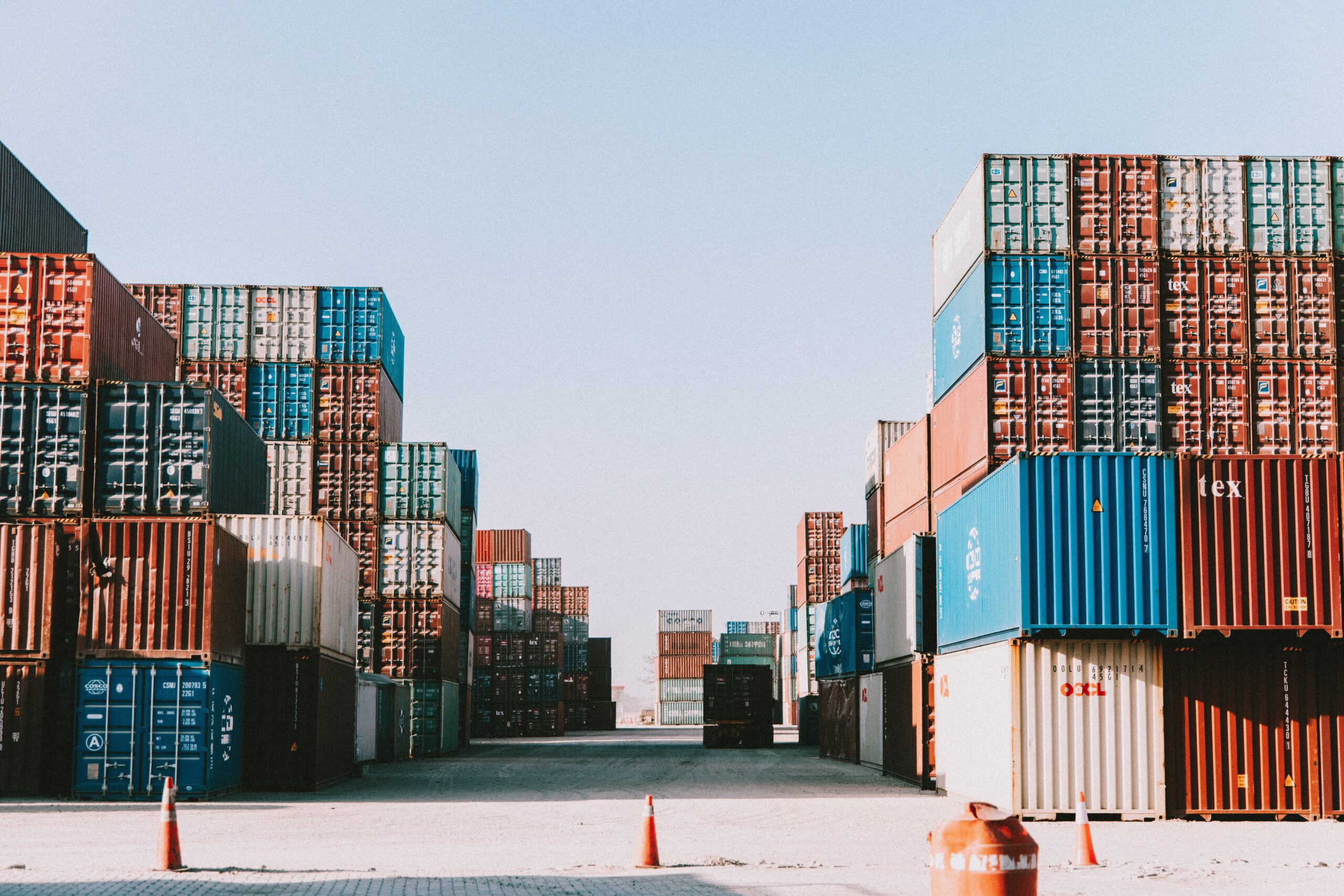If you’re searching for effective ways to prevent cargo theft, you’ve come to the right place. This article diligently breaks down the what, why, and how of cargo theft, providing you with practical strategies to secure your freight. Expect to learn about identifying risks, implementing robust security measures, and ensuring your supply chain remains resilient against theft.
Key Takeaways
- Cargo theft is a multifaceted issue involving straight theft, strategic theft, technology-based theft, and pilferage, requiring comprehensive strategies encompassing physical and digital security measures, employee training, and a culture of security awareness.
- Effective security measures to protect freight include the use of security cameras with advanced features, employing virtual security guards for remote monitoring, and implementing video surveillance systems for continuous observation and recording.
- A layered approach to cargo security is essential, including vetting carriers, complying with data privacy laws, employing cyber security measures, securing storage and distribution facilities with surveillance and access control, and collaborating with law enforcement for prevention and investigation of theft.
Understanding Cargo Theft: Types and Methods

Cargo thieves are like chameleons, adapting their tactics to steal your hard-earned goods, and they are becoming increasingly sophisticated. From straight theft, where cargo is stolen from its stationary location, to more elaborate strategies like strategic theft and technology-based theft, the variety of methods employed by cargo thieves is alarming.
Another subtle yet equally damaging form of cargo theft is pilferage, often undetected until the delivery process. This lays a heavy burden on shippers, making cargo theft a multi-faceted threat that requires a multi-pronged solution. Businesses can effectively protect their cargo by understanding the nature of these thefts and executing a well-rounded security strategy.
Straight Theft
Straight theft is a stark reality in the logistics and transportation industry. It’s the physical act of taking commercial shipments from their designated location, leading to significant losses estimated between $15 to $35 billion in the United States alone. The locations commonly targeted include:
- truck stops
- warehouses
- train stops
- loading and unloading docks
- storage facilities
Essentially, any place where goods are left idle and unattended.
Preventing straight theft involves more than just locking up the cargo; it requires a comprehensive approach that includes:
- Avoiding leaving loaded trailers unattended
- Utilizing high-security rear door locks
- Enhancing digital security
- Integrating real-time visibility technology for cargo tracking
Foremost, fostering a culture of security consciousness among employees and providers is key, ensuring collective responsibility in cargo protection.
Strategic Theft
Strategic cargo theft is a deceptive play, where thieves use fraud and misleading information to con shippers, brokers, and carriers into handing over the load to them instead of the rightful carrier. This deceptive dance of thievery often happens at freight consolidation facilities or other points in the commercial shipment supply chain.
The prevalence of identity theft, fictitious pick-ups, double brokering scams, and fraudulent carriers in strategic cargo theft calls for businesses to keep their guard up. Securing cargo extends beyond the physical aspect; it encompasses the entire process, including consistently vetting carriers or brokers and maintaining alertness throughout the shipping process.
Technology-Based Theft
In the age of technology, cargo thieves have evolved and adopted tech-based methods to steal cargo. Technology-based theft involves the use of electronic devices to identify and obstruct GPS signals, making it a formidable challenge for businesses.
Keeping abreast of the latest security technology advancements is key to thwarting technology-based cargo theft. Incorporating tech solutions like:
- virtual security guards
- GPS tracking systems
- surveillance cameras
- biometric access control
can notably improve freight security, providing constant surveillance even in areas traditional security guards can’t reach.
Pilferage
Pilferage is the silent thief in the logistics world, often going unnoticed until delivery. This discreet form of cargo theft can cause disruptions in supply chain operations, resulting in delays in meeting customer orders and raising costs.
Thwarting pilferage necessitates proactive measures, such as:
- Mandating truck inspections by drivers
- Using high-security locks
- Encouraging a culture of alertness among employees to spot signs of pilferage, like changes in a driver’s appearance or non-compliance indicators during carrier vetting and monitoring
These measures can greatly assist in detecting and averting this subtle form of cargo theft, especially when it comes to motor truck and railroad car transportation.
Implementing Security Measures: Protecting Your Freight

Grasping the types of cargo theft is merely the beginning. The actual challenge lies in the execution of efficient security measures to safeguard your freight. These measures range from setting up security cameras to employing virtual security guards and utilizing video surveillance systems.
Security measures for protecting your cargo include:
- Security cameras, which deter criminals and provide continuous surveillance
- Virtual security guards, who can monitor areas inaccessible to traditional security guards and assist drivers remotely
- Video surveillance systems which serve as an effective deterrent against cargo theft
These measures work together to enhance the security of your cargo.
Security Cameras
Security cameras play a pivotal role in securing your cargo. Not only do they deter potential thieves, but they also provide real-time monitoring of your cargo, which is invaluable in the event of any theft.
But not just any security camera will do. You need a security camera that possesses outdoor capabilities with high resolution, night vision, motion detection, and remote access. Furthermore, for warehouse protection, it’s crucial for the camera to have features such as access control and integration with inventory and alarm systems.
The correct security camera provides you with the reassurance of knowing your cargo is continuously monitored.
Virtual Security Guards
Virtual security guards are the future of cargo security. These skilled professionals, also known as virtual security guard, perform remote monitoring, improving video surveillance by using supplementary tools like:
- microphones
- speaker units
- phones
- panic buttons
This setup enables them to not only observe but also engage directly with employees as needed.
The real-time communication channels used by virtual security guards, such as loudspeakers, allow them to prevent criminal activities and convey announcements as if they were physically present on-site. Offering increased security coverage and significant cost reduction, virtual security guards present an attractive solution for cargo security.
Video Surveillance
Video surveillance is another potent weapon in the arsenal against cargo theft. Video surveillance, by enabling uninterrupted monitoring and recording of cargo movement, offers crucial evidence in case of theft.
Selecting a suitable video surveillance system is crucial for cargo security. Commercial security cameras and CCTV surveillance systems are highly recommended for ensuring cargo security. When procured from reputable retailers and suppliers, these systems ensure comprehensive coverage and detailed recording of all cargo movements.
Enhancing Supply Chain Security: Best Practices
While securing the cargo is vital, safeguarding the entire supply chain is equally important. Improving supply chain security involves numerous best practices, including carrier vetting, data privacy laws compliance, and cyber security measures implementation.
Vetting carriers is crucial in authenticating the quality of carriers and guaranteeing cargo security. Compliance with data privacy laws enhances supply chain security by implementing encryption for secure data sharing. And cyber security measures, such as deploying firewalls and enforcing strong passwords, help safeguard sensitive cargo-related information and systems from unauthorized access.
Vetting Carriers
The process of vetting carriers plays a crucial role in preventing cargo theft. It involves verifying carriers’ credentials, safety ratings, and compliance status. This not only authenticates the quality of carriers but also guarantees cargo security.
Vetting carriers should be a regular practice in logistics. Carriers should be vetted daily or even more frequently. This ensures that only trustworthy partners handle your cargo, significantly reducing the risk of theft.
Data Privacy Laws Compliance
In the current digital era, data privacy is a significant concern. Adherence to data privacy laws helps to protect sensitive data from unauthorized access by malicious individuals.
Adhering to data privacy regulations in the cargo security sector involves:
- Establishing expectations for data handling
- Maintaining clear records of consent
- Verifying adherence to confidentiality principles through monitoring and auditing
These measures help protect sensitive cargo-related information and systems from unauthorized access.
Cyber Security Measures
In the digital era, cyber security measures have become indispensable. The employment of strong passwords, installation of firewalls, and use of end-to-end encryption guarantees the security of your cargo information throughout its journey.
Apart from these, it’s also important to:
- Conduct comprehensive background checks on employees and contractors
- Implement access control measures
- Utilize cyber security solutions such as Sensor Technology (Smartbox) to monitor and track cargo in real-time and identify tampering or unauthorized access.
Securing Storage and Distribution Facilities

Storage and distribution facilities, including tank or storage facility, are vital links in the supply chain. These facilities, often targeted by cargo thieves due to the large volumes of cargo stored, can be secured with surveillance cameras, access control systems, and theft specialists, considerably mitigating the risk of cargo theft.
Surveillance cameras provide constant monitoring of these facilities, deterring potential thieves. Access control systems limit entry to authorized personnel, reducing the risk of theft. And theft specialists, with their expertise in analyzing theft patterns, can recommend targeted security measures to further strengthen the security in these facilities.
Surveillance Cameras
Surveillance cameras are an effective security measure for storage and distribution facilities. These cameras provide constant monitoring of these facilities through video recordings, deterring potential thieves.
Choosing the right surveillance camera for these facilities is critical. The camera should be capable of capturing high-quality images in both day and night conditions and offer remote access to the footage for convenient monitoring and incident analysis.
Access Control Systems
Access control systems are a fundamental part of securing storage and distribution facilities. These systems manage the vehicular traffic entering and exiting a facility, utilizing suitable technology and strengthening cyber-security measures to deter unauthorized access.
Choosing the right access control system involves:
- Evaluating risks and requirements
- Selecting appropriate control devices
- Implementing a visitor management system
- Providing staff training
With the right access control system, you can ensure that only authorized personnel have access to your storage and distribution facilities.
Theft Specialists
Theft specialists bring a unique expertise to the table in securing storage and distribution facilities. They analyze theft patterns and provide recommendations for targeted security measures, including the deployment of surveillance cameras with video analytics, enhanced access control systems, and professional security personnel.
Their responsibilities encompass:
- Analyzing theft patterns
- Providing recommendations for targeted security measures
- Deploying surveillance cameras with video analytics
- Enhancing access control systems
- Deploying professional security personnel on transportation vehicles to deter cargo theft.
The Role of Law Enforcement in Combating Cargo Theft
Law enforcement agencies have a critical role in combating cargo theft. Their participation includes:
- Tracking and investigating organized crime syndicates
- Tracking and investigating drug trafficking
- Tracking and investigating terrorism funding linked to cargo theft
This contributes to the safeguarding of the economy and national security.
The FBI’s Uniform Crime Reporting Program collects and disseminates cargo theft data to various stakeholders, including law enforcement. This enhances crime prevention strategies and offers a comprehensive understanding of the patterns and extent of cargo theft occurrences.
Developing a Layered Approach to Cargo Security
A layered approach to cargo security offers a holistic method to prevent cargo theft. It involves:
- Developing internal processes and procedures
- Conducting regular training and awareness events for employees
- Educating them to identify, prevent, and report cargo theft techniques
Developing internal processes provides a solid foundation by establishing clear procedures and policies that can prevent theft and protect the supply chain. Regular employee training fosters a culture of ethical conduct, increasing awareness of cargo security best practices. And awareness events educate employees on the risks of cargo theft, reinforcing the importance of security measures.
Case Studies: Successful Cargo Theft Prevention
Despite the intimidating challenge posed by cargo theft, instances of successful cargo theft prevention stand as beacons of optimism. Take the case of the WKS Restaurant Group, for instance. They implemented a comprehensive security strategy by partnering with Interface to deploy video-verified intrusion alarm monitoring and virtual guard services, effectively preventing cargo theft and maintaining secure operations.
The success story of the WKS Restaurant Group is just one example of many. Companies such as:
- Powerfleet
- Tive
- LocatorX
- TruckX
- NFI
have also implemented successful cargo theft prevention strategies, demonstrating that with the right approach and resources, cargo theft can be effectively prevented.
Summary
Cargo theft is a pressing issue that continues to plague businesses. It is a multi-faceted threat that requires a multi-pronged solution. From understanding the different types of cargo thefts to implementing effective security measures and enhancing supply chain security, this blog post has provided comprehensive insights into securing your freight.
Securing your cargo is not just about protecting your bottom line; it’s about safeguarding your reputation and ensuring the trust of your customers. With the strategies discussed in this blog post, you are well-equipped to turn the tide against cargo theft and secure your freight effectively.
Frequently Asked Questions
Where is cargo theft most common?
Cargo theft is most common in California, Texas, Florida, Georgia, and Illinois, according to recent data. These states have seen a significant increase in cargo theft incidents.
What is the trend in cargo theft in 2023?
Cargo theft is on the rise in 2023, with a 1% increase compared to 2022 and a 57% increase in North America.
What is strategic cargo theft?
Strategic cargo theft involves deceptive tactics such as misdirection attacks, conversion schemes, and fictitious pickups to divert shipments from the intended receiver. This type of theft is more calculated and complicated than straight cargo theft, involving the deception of people at various points in the supply chain.
What is the best method to prevent cargo theft?
The best method to prevent cargo theft is to use theft deterrent devices, avoid leaving your vehicle unattended, and be vigilant of your surroundings. Taking these precautions can help secure your freight and minimize the risk of theft.
What is remote video surveillance?
Remote video surveillance allows you to view, manage, and operate video cameras from a distance, whether it’s through a live feed on the go or managing the system entirely offsite.
